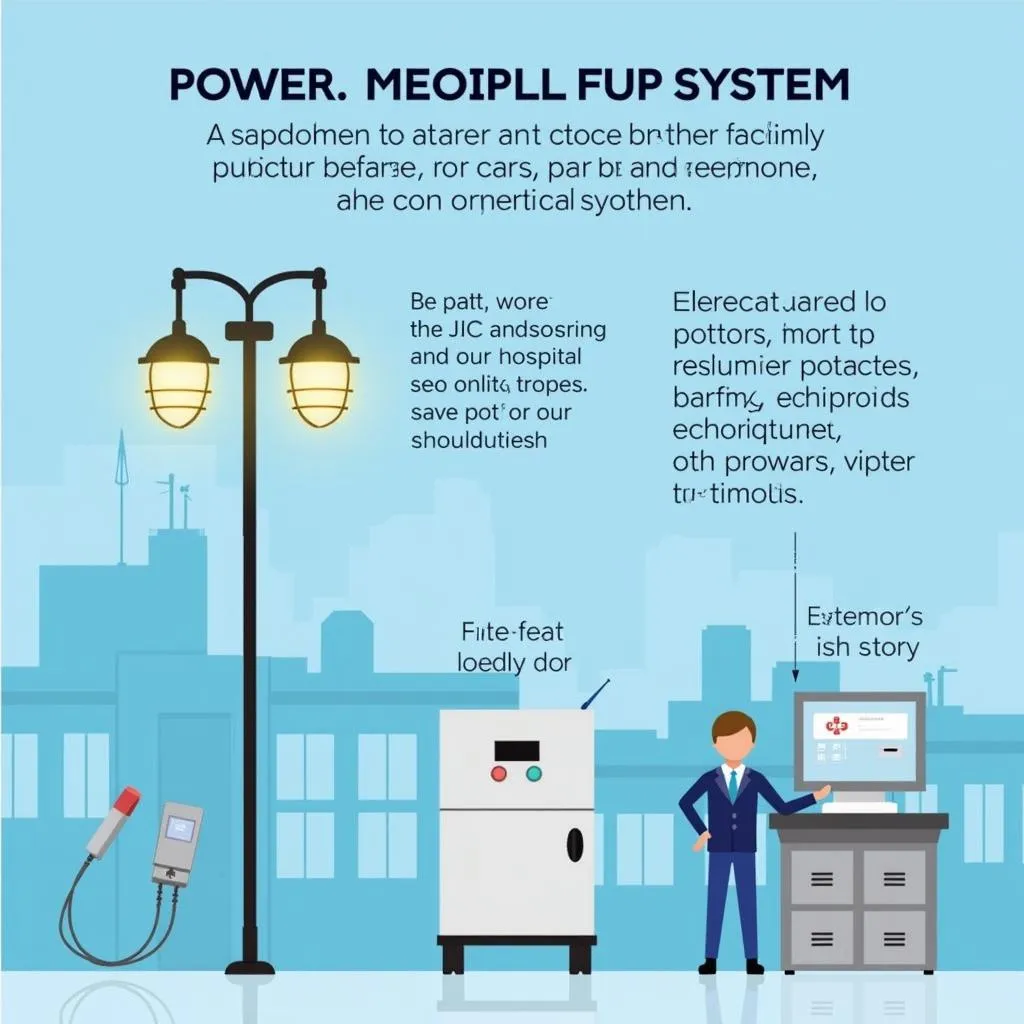Hospitals rely on constant power to function effectively, and any disruption can have serious consequences for patient care. That’s why hospital batteries are critical for ensuring uninterrupted operation, even during power outages. This comprehensive guide explores everything you need to know about hospital batteries, from their essential role to key factors to consider when choosing the right system for your facility.
What Are Hospital Batteries and Why Are They Important?
Hospital batteries, also known as backup batteries or UPS (Uninterruptible Power Supply) systems, are essential for maintaining power during outages. They provide a reliable source of energy for critical medical equipment like life support systems, ventilation, and lighting, ensuring uninterrupted care for patients.
Types of Hospital Batteries
There are several types of batteries used in hospitals, each with its advantages and disadvantages:
- Lead-acid batteries: These are the most common type due to their affordability and proven reliability. They are available in various sizes and configurations to meet diverse power needs.
- Lithium-ion batteries: These newer batteries offer higher energy density, longer lifespans, and faster charging times. However, they are generally more expensive than lead-acid batteries.
- Flywheel energy storage: This technology stores energy in a spinning flywheel, providing a quick and reliable backup power source. It is often used for short-duration power outages.
Key Factors to Consider When Choosing Hospital Batteries
Selecting the right battery system for your hospital requires careful consideration of several key factors:
- Capacity: Determine the total power output needed to run critical equipment during an outage.
- Runtime: How long do you need the batteries to provide power? This depends on the length of typical power outages in your area and the duration of critical medical procedures.
- Charging time: How long does it take to recharge the batteries after a power outage? This is crucial for ensuring rapid recovery and uninterrupted operation.
- Maintenance: Choose a system with low maintenance requirements for optimal efficiency and cost savings.
- Safety: Battery systems should meet strict safety standards and regulations to prevent fire hazards and electrical shocks.
Best Practices for Hospital Battery Maintenance
Regular maintenance is crucial for extending the lifespan and performance of hospital batteries:
- Regular inspections: Visual inspections and testing of the batteries should be conducted at least once a month.
- Charging: Batteries should be fully charged on a regular basis, even when not in use.
- Battery replacement: Replace batteries according to manufacturer guidelines to ensure optimal performance.
The Benefits of Using Hospital Batteries
Investing in a reliable Hospital Battery system offers numerous benefits:
- Uninterrupted patient care: Ensures the continuous operation of life-saving medical equipment, preventing medical emergencies and adverse patient outcomes.
- Reduced downtime: Minimizes disruption to hospital operations during power outages, enhancing efficiency and productivity.
- Improved safety: Provides a secure and reliable power source, enhancing safety for patients, staff, and visitors.
- Compliance with regulations: Ensures compliance with industry standards and regulations for healthcare facilities, minimizing risks and potential liabilities.
Expert Insights on Hospital Batteries
“Hospital batteries are a critical component of any healthcare facility’s emergency preparedness plan,” says Dr. Sarah Miller, a renowned healthcare engineer. “Choosing the right system requires careful consideration of the specific needs and requirements of each facility to ensure reliable and safe operation.”
Frequently Asked Questions about Hospital Batteries
Q: What are the different types of hospital battery systems?
A: Hospital battery systems come in various types, including lead-acid batteries, lithium-ion batteries, and flywheel energy storage. Each type has its unique advantages and disadvantages, and the best choice depends on your specific needs and budget.
Q: How long do hospital batteries last?
A: The lifespan of hospital batteries varies depending on the type and maintenance practices. Lead-acid batteries typically last for 5-10 years, while lithium-ion batteries can last up to 15 years.
Q: How often should I replace my hospital batteries?
A: Battery replacement is typically recommended every 5-10 years, depending on the type and manufacturer guidelines. Regular maintenance and testing can help extend their lifespan.
Q: What are the risks of using hospital batteries?
A: Hospital batteries are generally safe, but there are potential risks associated with improper installation, maintenance, or operation. It’s important to follow manufacturer guidelines and have the batteries installed by qualified professionals.
Conclusion
Hospital batteries are an essential component of ensuring uninterrupted patient care and safe operations in healthcare facilities. By understanding the different types, key factors to consider, and best practices for maintenance, you can make informed decisions and select the right battery system to meet your hospital’s specific needs. Don’t hesitate to contact our team of experts for personalized assistance in choosing and maintaining your hospital battery system.
 Hospital Battery System
Hospital Battery System
If you have any further questions or need assistance with your hospital battery needs, please contact us today! Our team of experts is available 24/7 to provide you with the support you need. You can reach us by phone at 02437655121, email at [email protected], or visit us at Số 298 Đ. Cầu Diễn, Minh Khai, Bắc Từ Liêm, Hà Nội, Việt Nam.